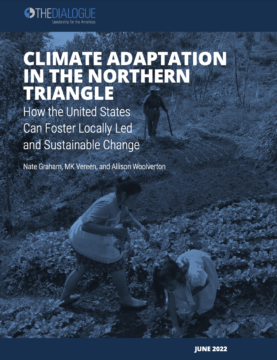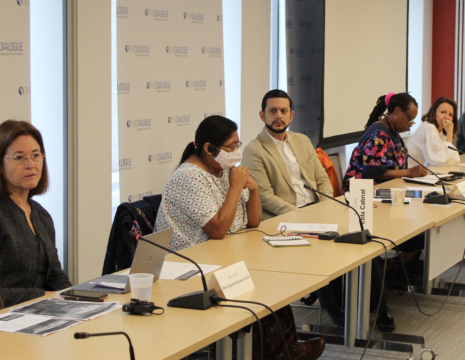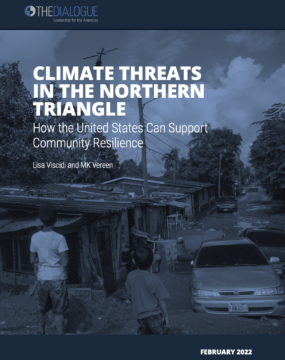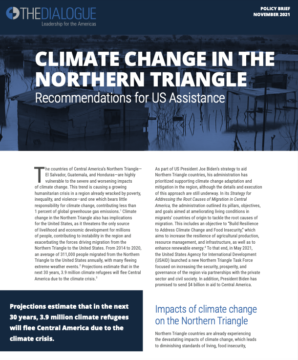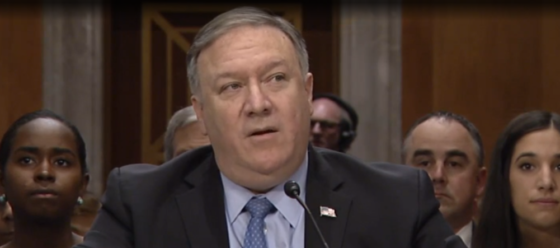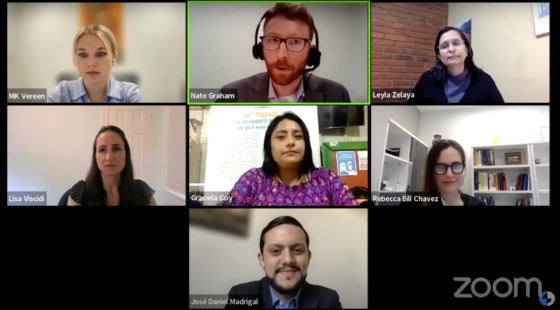 Video
Video
Findings of the Task Force on Climate Adaptation in the Northern Triangle
On June 14, 2022, the Inter-American Dialogue hosted a webinar presenting the main findings of its Task Force on Climate Change in the Northern Triangle.
On June 14, 2022, the Inter-American Dialogue hosted a webinar presenting the main findings of its Task Force on Climate Change in the Northern Triangle.
This report, informed by the Dialogue’s Task Force on Climate Change in the Northern Triangle, complements the recommendations of the previous report in the series, on themes such as agriculture, water, energy, and finance, with strategic recommendations for US assistance to foster effective and sustainable adaptation, especially through empowering local leadership.
On May 4 and 5, a delegation of task force members traveled to DC to share their insights and recommendations with officials from various US government entities.
Rural subsistence farmers, ethnic communities, women, and young people are disproportionately affected by climate change in the Northern Triangle, according to a report by the Inter-American Dialogue, which focuses on adaptation in the region with an emphasis on climate justice and mitigating the impacts on vulnerable communities.
The countries of Central America’s Northern Triangle—El Salvador, Guatemala, and Honduras—are especially vulnerable to the severe and worsening impacts of climate change. This policy brief, the first in a series of three publications, describes the main challenges and provides broad recommendations for the US strategy on climate change adaptation in the region. It is based on inputs from the Task Force on Climate Change in the Northern Triangle, coordinated by the Inter-American Dialogue.
What are the consequences of the Trump administration’s decision to cut off aid to Northern Triangle countries?
The U.S. president needs to keep cooperating closely with Mexico, steer clear of any military action in Venezuela and refrain from bullying his partners and allies in the region.
